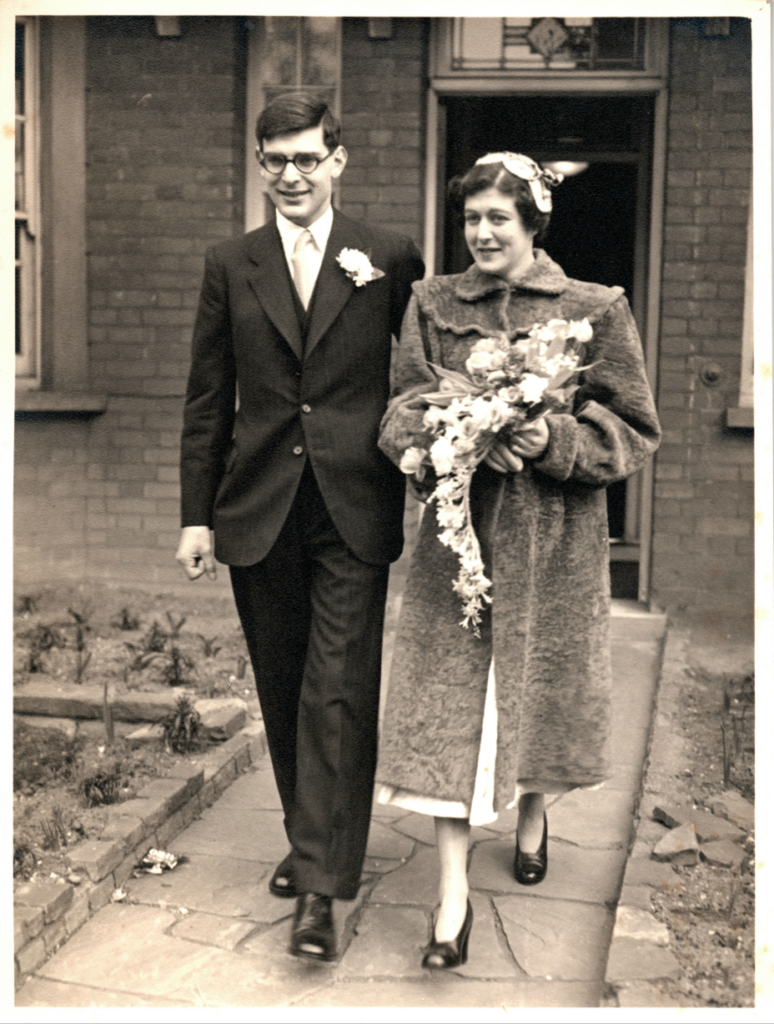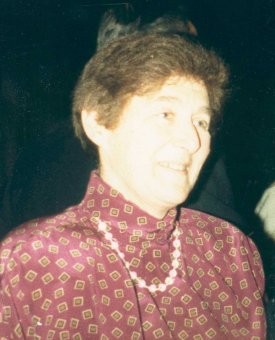In Memory of Jill and Norman Franklin

Objectives
The Trust is a grant-making trust with powers to give money for any charitable purpose. We aim to support organisations working in the poorer regions of the UK (especially North East England and South West of Scotland) who work with:
- Refugees and asylum seekers including people with No Recourse to Public Funds (NRPF),
- Education and training of prisoners,
- Women who have survived or are at risk of domestic abuse,
- People with mental health issues,
- People with learning difficulties.
Additionally, we will provide grants for the restoration of architecturally significant churches anywhere in UK. This is in particular reference to Jill’s work as an architectural historian.
Jill Franklin (1928 ~ 1988)

Obituary from The Guardian, Friday 1 April 1988
THE death of Jill Franklin at only 59 has robbed the world of architectural history of one of its most distinguished practitioners.
The daughter of a senior civil servant in the Treasury she read Greats at St. Hugh’s College, Oxford and subsequently worked as a typographer and designer for Chatto and Windus. She married Norman Franklin of Routledge and Kegan Paul in 1953, and it was while their four children were growing up that she began the study of art history as an extra mural student of the University of London, by way of an intellectual diversion. Her exceptional ability was swiftly recognised by Margaret Whinney, and she went on to study for a Ph.D. at the Courtauld under the supervision of Nikolaus Pevsner.
The thesis she wrote then on the planning of the English country house became the basis of The Gentleman’s Country House and its Plan 1835-1940, published in 1981, a scholarly and exhaustive study. She described the refinements of planning which followed the polarisation of society into distinct classes, and the changing manners and the developing domestic technology of the time.
The research for this involved the study of the architects’ drawings, house visiting, and interminable reading of professional periodicals and building magazines, as well as the literature and many volumes of reminiscences written during this period. All this material was analysed, the houses separately described, and their plans meticulously redrawn to scale. It is a book which is constantly referred by her fellow architectural historians and those studying the sociology of the nineteenth and early twentieth centuries.
In 1973 she took up the post of tutor in the history of art and architecture with the Extramural Department of London University and later became a voluntary worker with the Camden Bereavement Service. Despite these calls upon her | time she was an enthusiastic member of the Victorian Society and organised each year memorable expeditions to country houses, during which the members were encouraged to contribute to a continuing discussion of planning and design. The care she took in arranging these visits made them most instructive and enjoyable, and they were always over-booked. She had recently been working on a new book on the development of lodges and gatehouses which promised to be as widely researched and innovative as that on the country houses. and it is sad that this cannot now appear.
ill Franklin will probably be best remembered by her colleagues for her constant encouragement and readiness to talk over either major problems of interpretation of material, or interesting snippets of information which might turn out to be of importance. The value of such a friend is hard to express. She was greatly loved and is missed dreadfully.
Jill Allibone
Norman Franklin (1928-2023)
The founder, chairman of trustees and benefactor of the Jill Franklin Trust, Norman Franklin, died on 1 January 2023, just shy of his 95th birthday.
Norman Franklin was the youngest of four children and the only boy, born into a prosperous North London Jewish family. Norman was sent to prep school at seven. From Charterhouse, he went up to Balliol College, Oxford, where he read chemistry.
After university. Norman Franklin joined the family publishing firm, Routledge & Kegan Paul, where he worked until his retirement on the takeover of the company. Norman took over running the company after his father’s sudden death in 1961. He oversaw a golden era in the company’s history, publishing books by some of the great post-War thinkers, including Bertrand Russell, Edmund Husserl, Theodor Adorno and Carl Jung, making the house a hotbed of left-wing ideas in an era when serious academic publishing was undertaken by independent publishers. He also oversaw the expansion of the business into America and Australia, and the development of new areas of publishing including the Rough Guide brand and Pandora, a feminist imprint.
Norman met his first wife, Jill Franklin, through publishing at an Society of Young Publishers meeting when she was a designer at Chatto. Sadly, two months after the enforced retirement, Jill died suddenly, Norman established the trust in her memory. Norman was the driving force behind the trust for many years and was Chairman until his death. He had a strong vision to help unpopular causes where fundraising is harder, and often led the way with his funding decisions, leading others to follow suit.
He married Carol Gardiner, a copy-editor from RKP, in 1989. He outlived her too, because she died in 2007. Very soon after her death, Norman, aged 89, did a charity abseil down the outside of Guy’s hospital to raise funds for the hospice where Carol died.
Norman was also closely involved in a number of charities, sitting on their boards, giving help and advice and supporting them himself.
Norman was a devoted cyclist. Many of the charities we have supported, all over the country, will be familiar with Norman visiting them by bicycle. In older age he used an electric bike. In 2017, aged 89, Norman and his sons cycled from Land’s End to John O’Groats, raising £120,000. In 2021, he switched to an electric tricycle on medical advice. In November 2022, a mishap on the tricycle caused a broken hip from which he sadly did not recover.
Norman is survived by his four children, seven grandchildren and four great-grandchildren